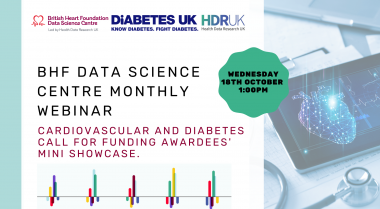Overview
After the introduction of the COVID-19 vaccines, it was not known how long they would remain highly protective against severe forms of the disease. This would become an important factor as new variants increased transmission and attention turned to a potential booster vaccine dose campaign. New research comparing data collected in Scotland and Brazil showed how the vaccine effectiveness waned within three months.
The challenge
As new variants of SARS-CoV-2 develop and spread in a population, the characteristics of the outbreak change. It might spread more easily, be less affected by vaccines or cause less severe symptoms. When the more transmissible Delta variant became the predominant form of COVID-19 in the UK in May 2021, it was accompanied by a sharp rise in the number of cases.
By this time, most UK adults had been fully vaccinated. However, this did not appear to prevent a new outbreak. Some reports suggested that the effectiveness of the vaccines was waning after a few months, as indicated by testing antibody levels in the blood. The presence of the new variant made it difficult to compare the figures to previous data without knowing whether the effects were due to the vaccine effectiveness or the characteristics of Delta.
The solution
Researchers supported by HDR UK set out to understand the impact of vaccine waning by comparing data in the UK, where the Delta variant was dominant, with Brazil, where the Gamma variant was common. Both countries had vaccinated many people with the AstraZeneca vaccine, making it possible to understand how this particular vaccine was performing.
The team used data from 5.4 million people in Scotland collected in the EAVE II study, which is funded by the Medical Research Council with the support of BREATHE—The Health Data Research Hub for Respiratory Health. This was analysed alongside three national databases from Brazil.
Impact and outcomes
The study showed that the AstraZeneca COVID-19 vaccine effectiveness fell in both countries within three months of the second dose, regardless of the predominant variant. This meant an increase in severe outcomes, such as hospitalisation or death.
These results provided further evidence of the need for booster doses in the months after the initial programme. The results were shared with numerous government advisory groups, including the JCVI (Joint Committee on Vaccination and Immunisation), SPI-M (Scientific Pandemic Influenza group on Modelling) and SAGE (Scientific Advisory Group for Emergencies).
The team is continuing to use the EAVE II data to analyse the vaccine effectiveness and safety, as well as the impact of the Omicron variant.
Prof. Chris Robertson from the University of Strathclyde, one of the authors of the paper published in The Lancet said:
“Because you get the same results in Brazil and in Scotland using exactly the same methods, where the circulating variant was different, then you know that these effects are not due to the variants or methodological differences. So we could see that it’s largely a function of the vaccines.”
Impact committee
The impact committee said that this was a solid piece of research which made good use of collaboration to access different data sources. In addition, the international nature of this work will make it more applicable to other countries as they make decisions on the rollout of booster vaccine doses, particularly in places where the AstraZeneca vaccine has been widely used.
Read the full paper




